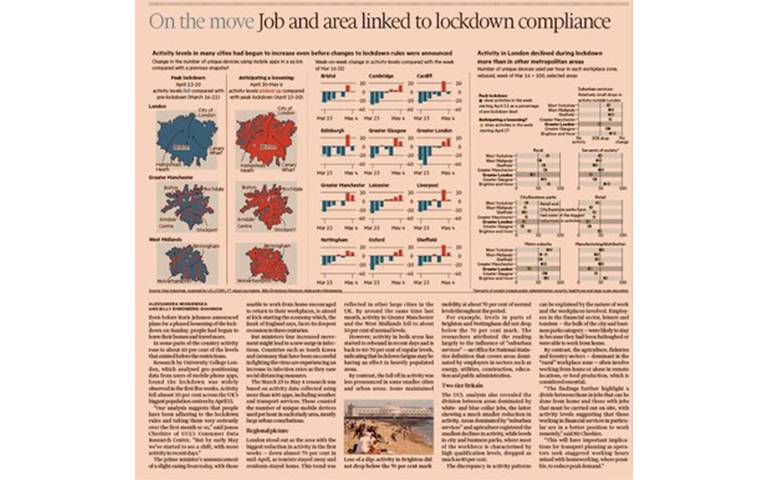The processes and politics of the Pandemic
7 June 2020
Active Covid-19 related research in UCL Geography

UCL Geography researchers are actively developing COVID-19 related research, as well as contributing commentaries, podcasts and ideas for more extended responses.
Epidemics and pandemics have long been recognised as geographical problems with several dimensions:
- Pandemics are global-scale problems, although with markedly different and unequal consequences for health and social and economic life in different parts of the world.
- Their spread is never universal. The Disease is clustered in specific regions and particular urban districts and locations, affecting populations in uneven ways. Its spread needs to be both traced statistically and mapped geographically.
- The structures and the spread of the disease have to be examined in the context of wider political and economic developments.
- The political and economic geography of scientific expertise is of growing significance, including the practices of contact tracing, tracking, testing, vaccine trials and development.
- The Covid-19 pandemic has disruptive consequences comparable in scale to major events such as wars and revolutions. It, therefore, demands that we address the critical role in human history of physical and biological processes and nonhuman agents, from viruses to climate change.
Research in UCL Geography is shedding light on many of these aspects of the COVID-19 pandemic.
For example, Professor James Cheshire and Terje Trasberg have analysed measures derived from in-app phone data to chart how activity levels have changed in major UK cities during the period of lockdown.
Dr Amy Horton is developing collaborative research on the impacts of Covid-19 on the finances of care homes and the sustainability of the sector.
Dr Alan Ingram is currently working on the disruptive and unpredictable consequences of Covid-19 as a geopolitical event (with Professor Andrew Barry).
Professor Julian Thompson, with colleagues in Italy and China, has published a review in the journal Water Research of the potential for secondary transmission of coronavirus in the water environment.
 Close
Close

